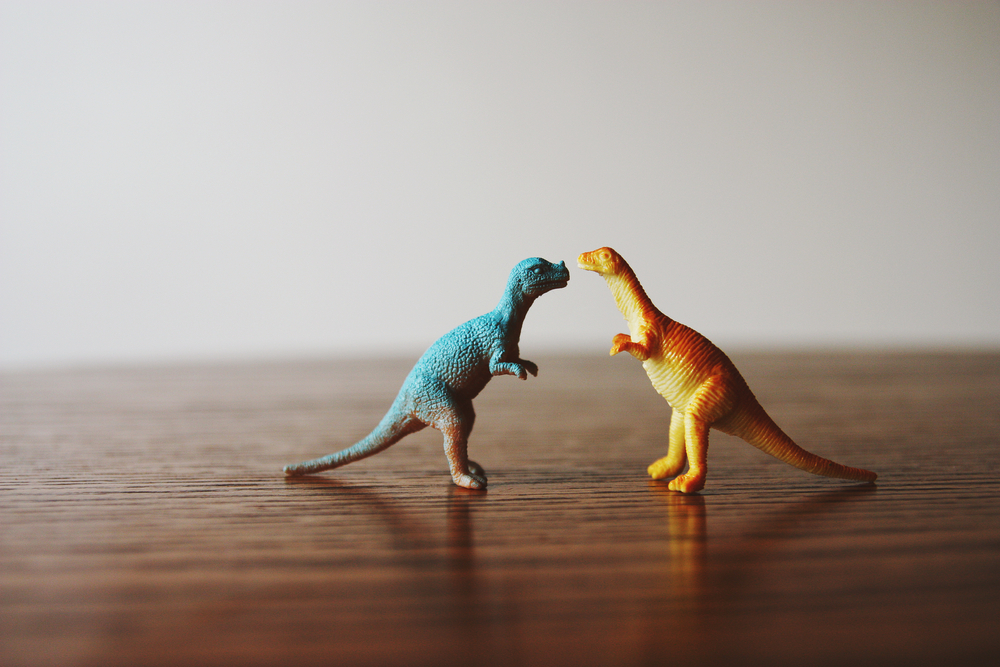
A new study has revealed that dinosaurs were already in serious decline before an asteroid slammed into the side of the planet and finished them off once and for all.
From a juncture estimated to be about 220 million years ago, the creatures we know as dinosaurs clawed their collective way to the top of the food chain. The carnivores among them became the true tyrants of the late Triassic, bossing the world and morphing into new and increasingly efficient species.
Palaeontologists have long known that, around 66 million years ago, an asteroid measuring up to 10km across thumped into the surface of the planet, in the spot that is now the Gulf of Mexico, with catastrophic consequences that totally ruined the dinosaur’s party and wiped out two-thirds of life on Earth. However, new evidence now suggests that at least some of these big guys were poised for a fall long before the rogue rock turned the lights out for them.
Researchers from the universities of Reading and Bristol analysed the family fortunes of the three main groups of dinosaur: ornithischians (beaked herbivores like stegosaurus), sauropods (long-necked plant-munchers such as the diplodocus) and theropods (meat-eating monsters including Tyrannosaurus rex).
Their findings, published in the Proceedings of the National Academy of Sciences, revealed that the dinosaurs’ purple patch began to wane as early as 140 million years ago, and within the space of 50 million years (still 24 million years before the Cretaceous–Paleogene extinction event occurred) they were in serious decline, with species becoming extinct quicker than new ones were emerging.
Even if this didn’t spell the beginning of an inevitable end for the dinosaurs, it almost certainly made them less resilient and less likely to be able to bounce back from the devastating blow destiny had in store for them, according to Chris Venditti, an evolutionary biologist at the University of Reading and author of the report. ‘Because diversity was lacking, because species were going extinct and not being replaced, it might have made them more susceptible,’ he says.
The research also revealed other factors that were likely contributing to the decline of dinosaurs, including climate change, which was causing sea levels to rise and fragment the planet’s land masses, and the evolution of other creatures that preyed on dinosaur eggs.
However, although meat eaters were fairing particularly poorly, some duck-billed and horn-faced species of dinosaur were seen to be thriving—possibly because of the arrival of flowering plants that they feasted on—and University of Edinburgh palaeontologist Stephen Brusatte has challenged the claim that the mighty reptiles were all heading for oblivion.
‘It may be that the effects of the asteroid were a bit worse because you had dinosaurs that maybe weren’t as strong in an evolutionary sense as they once had been,’ he told the Guardian. ‘But I think if there was no asteroid you would still have dinosaurs around today.’
